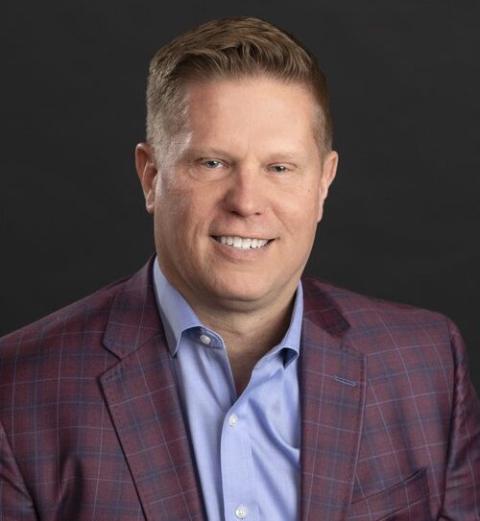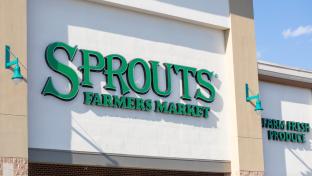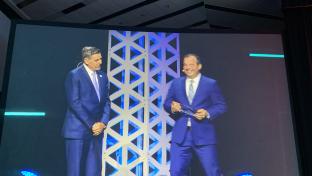Evolution at Simmons Pet Food Positions Company for Growth

The past couple of years have been a busy time of evolution and change at Simmons Pet Food. Driven by a $500 million strategic growth plan, the company in 2022 exited the dry pet food and pet treat categories to focus on wet pet food, and made significant investments in manufacturing at several facilities in the Midwest.
Notable among those additions was the installation of a fourth high-speed canning line at its manufacturing facility in Emporia, Kan., and a second production line of canned pet food at its Dubuque, Iowa plant. Additionally, the company opened a 750,000-square-foot facility in Edgerton, Kan. focused on meeting demand for multi- and variety-packed pet food products.
Those enhancements and changes have had a positive impact on the company’s business, said Scott Salmon, president of Simmons Pet Food. Recently, Salmon spoke with Store Brands to discuss the company’s current day operations and how it is positioned for future growth.
STORE BRANDS: The past couple of years have seen major changes at Simmons. What impact have those changes had on the company?
SCOTT SALMON: There are a few things that I could highlight, but the biggest is our understanding of the pet and the pet parent is greater than it has ever been. We invested in not only tools and resources, but also experienced leaders who have a great understanding of the marketplace. We have a strategy in-house that we have developed over the past few years, and part of that is to lead with technical expertise. That allows us to identify the trends, the decisions [pet parents] make and to understand the lifestyle they want for themselves and their pet.
As we have a better understanding of the demand drivers, we have also invested in capacity. In 2019, we put in a flexible products plant that has two lines in Emporia (Kansas) that does pouches, cups and split cups. In 2021, we opened a new facility in Dubuque (Iowa) where we have a team of close to 500 people. We have two lines running there and do multiple product sizes.
We’ve really prepared ourselves to make sure that we never get caught in the situation that a lot of people went through during the pandemic. We want to make sure we have enough (manufacturing) capacity and that we have a strong understanding of consumer trends to allow us to use that capacity properly.
SB: What have been some of the immediate benefits of the changes Simmons has made to its production and distribution efforts?
SS: The biggest part has been improved service. While we had challenges during COVID to meet demand, our service has gotten dramatically better. But we still have a ways to go. The capacity that we have added has given us the capability to do things that we haven’t done before.
We're in the process of rolling out automated variety pack capabilities, which typically throughout the industry is done manually. That is in the process of going into our facility now and should be up and running sometime in the first quarter of 2024.
I would also say that the difference between us and other private label companies in a lot of categories or co-manufacturers is our ability to provide consumer insights for the entire category. When we sit in meetings with our partners, I think they’re blown away by our insights and the view we have of the category. This really tells the story of why we’re doing what we’re doing. That shows the tools and leadership we have added to the team are making a massive difference every day.
SB: What are some of the more significant changes Simmons has seen over the past few years as it pertains to consumer behavior?
SS: If you go back 50 years, pet food was really feed. That evolved to where over a pre-pandemic period of time from 10 to 30 years, pet food was viewed as fuel. Today, as so many people have become foodies, this has transitioned to what they feed their pet. We have seen the pet parent become much more engaged, whether it’s personalization or humanization, people are taking the same care and focus with their pet’s food as they do with their own food.
And if you look at the past five years, we still see wet pet food growing disproportionately, and see differences in how people feed their pet. It has evolved from just dry food to dry with a little bit of wet to now where we see wet food getting mixed in for one or two meals a daily. The future could be that the bowl is actually mostly wet food with dry food on top. Think of croutons on a salad.
SB: How has the private brand segment of the business evolved in recent years?
SS: Private label pet food is a much smaller percentage of the total than it is in the rest of the store. So you would naturally say that there's a huge opportunity for private label pet food. It has been held back, in my opinion, in large part because of a lack of capacity. Now that players like ourselves and others have come forward with additional capacity. I think you're going to see a significant evolution in wet pet food. During inflationary times, having an opening price point has become much more important. And we're seeing the consumer make those kinds of decisions, but we want to be there as a partner to offer private label in the different segments that the consumer deems relevant.
But we have a portfolio of customers where the brands have very unique relationships, not only with the pet but the pet parent. We’re not looking to disrupt that, but we want to make sure that there's an appropriate offering in the private label space. There are a couple of major retailers that I would say have been successful with private label pet food. They have made it socially acceptable to buy it and they're having incredible success. And I think that has opened a number of doors.
SB: So, the success a few retailers are having in private label is enticing other retailers to give the category a look?
SS: When you start to look at how people are gaining and losing share, private label is playing a much more significant role in writing that story. I think that retailers have come to the realization that they can design and work with a partner like Simmons to create the quality of private label that they so desire. It is very different from 20 years ago when private label was in a white bag that just said pet food. Private label pet food has become much more relevant in just the past few years, and I would expect that to continue to accelerate.
SB: Sustainability is an issue for retailers and suppliers across all product categories. What impact is this having at Simmons?
SS: Sustainability is top of mind for the retailers and manufacturers we work with. For Simmons, the issue is a significant one for our company. The great thing about the pet food business and poultry, for example, is that it is a zero-waste business. When processing chicken 55% goes toward human consumption and 45% goes to pet food ingredients. Zero waste is really our foundation.
But the biggest part of our business is packaging and the use of the steel can that can be recycled numerous times. I think (packaging) is a big opportunity as we have a lot of evolving package types and sizes. There are big opportunities as we get into more flexible packaging to make sure we keep our eye on the topic of sustainability.


